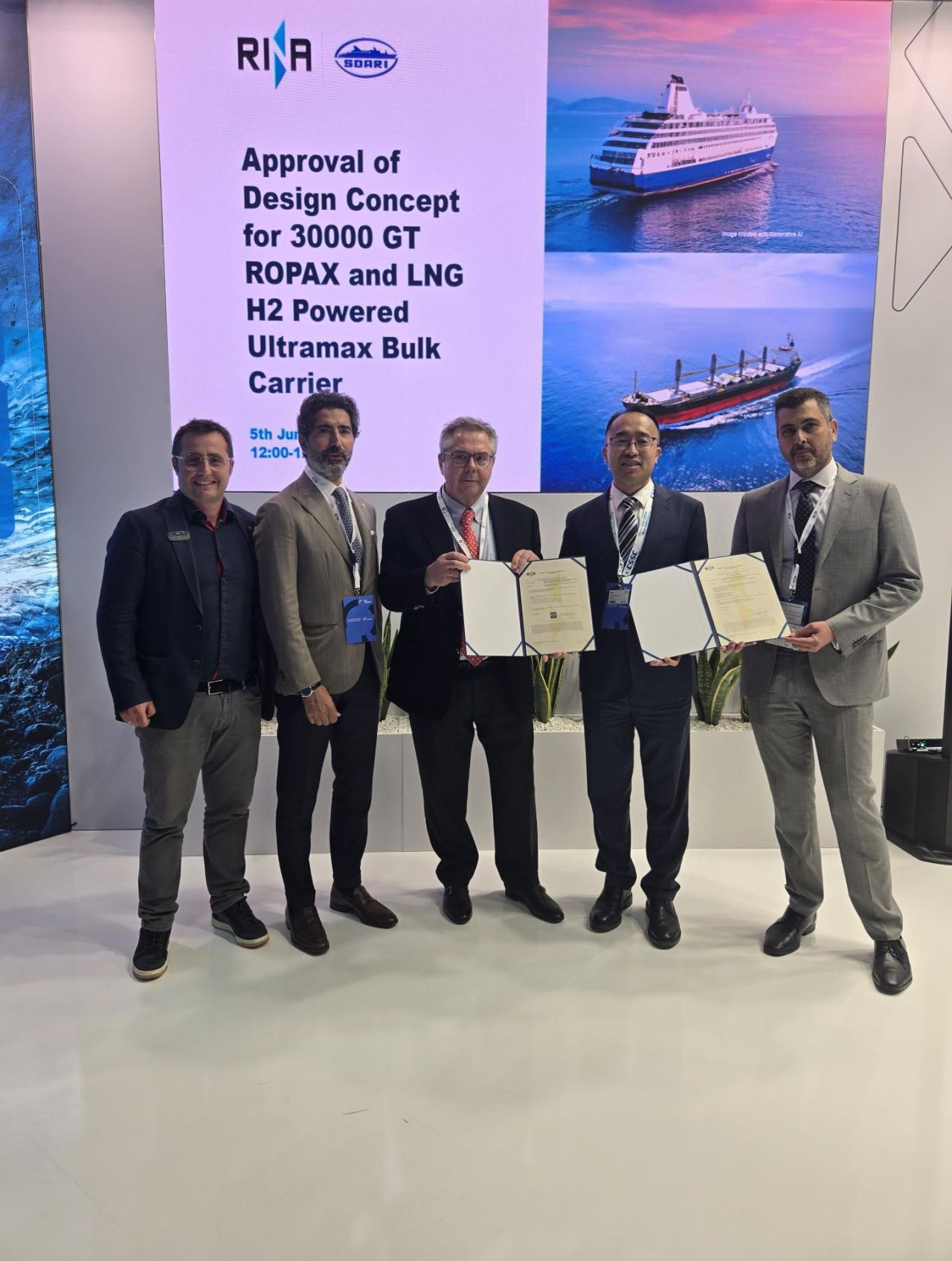Revolutionizing Maritime Industry: Innovative LNG/Hydrogen-Powered Ultramax Bulker Design Receives RINA's Approval
Key Ideas
- RINA has granted approval in principle for a new dual-fuel LNG/hydrogen-powered Ultramax bulker design developed by SDARI and Almi Marine Management, focusing on energy efficiency and emissions reduction.
- The innovative design integrates battery-assisted electric propulsion, wind-assisted systems, and a unique hydrogen-reforming solution to tackle challenges of hydrogen storage and supply, enhancing energy efficiency and future adaptability.
- The vessel's modern hull design and hybrid-electric propulsion contribute to increased cargo capacity, reduced fuel consumption, and optimized pathway to GHG Fuel Intensity compliance, with onboard hydrogen production paving the way for net-zero GHG emissions by 2050.
- This eco-friendly approach aligns with RINA's previous recognition of SDARI's novel propulsion system in the Aframax tanker design, showcasing improved fuel efficiency across all speed ranges compared to traditional dual-fuel ships.
Italy's classification society RINA has granted approval in principle (AiP) for an innovative LNG/hydrogen-powered Ultramax bulker design developed by Shanghai Merchant Ship Design & Research Institute (SDARI) in collaboration with Almi Marine Management. This approval follows a joint development project focused on energy efficiency and emissions reduction, with the design based on SDARI's Green Dolphin 64 platform.
The approved design features a dual-fuel system, combining LNG and hydrogen, along with hybrid propulsion and energy efficiency technologies to meet current regulatory requirements. It incorporates battery-assisted electric propulsion, wind-assisted systems, and a novel hydrogen-reforming solution to address challenges related to hydrogen storage and supply. The vessel's modern hull design enhances cargo capacity and reduces fuel consumption, while hybrid-electric propulsion ensures adaptability to future innovations.
One of the key highlights of the design is the onboard hydrogen production, which aims to improve the ship's Carbon Intensity Indicator (CII) and facilitate compliance with GHG Fuel Intensity (GFI) regulations. Additionally, this approach sets a course for achieving net-zero GHG emissions by 2050 by transforming LNG into hydrogen onboard.
RINA's recognition of SDARI's eco-friendly Aframax tanker design from the previous year, developed with TMS Tankers and Wärtsilä, underlines the industry's shift towards enhanced fuel efficiency. The new propulsion system in the Ultramax bulker design, featuring two medium-speed engines instead of the traditional setup, is expected to deliver improved fuel efficiency across all speed ranges.
The approval of this groundbreaking design signals a significant step towards sustainable practices in the maritime sector, showcasing a commitment to innovation, collaboration, and future-ready solutions.
Topics
Projects
Innovation
Green Technology
Energy Efficiency
Collaboration
Maritime Industry
Classification Society
Sustainable Design
Future Solutions
Latest News
